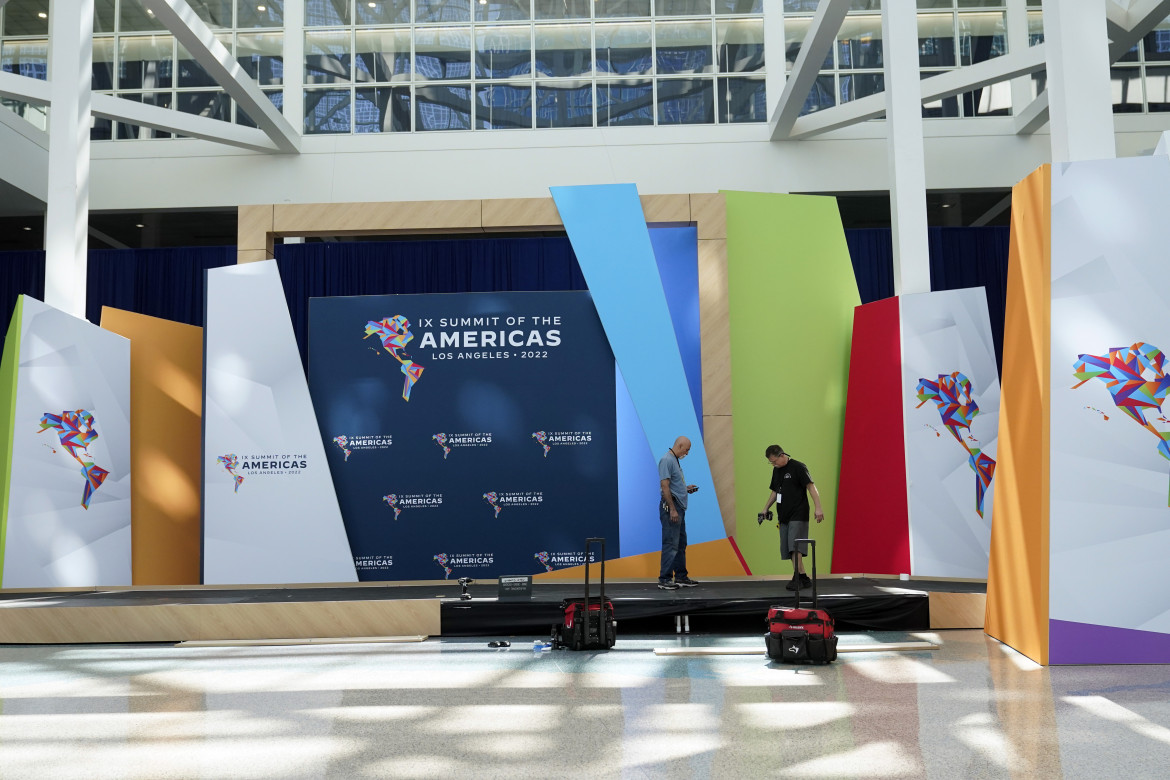Commentary
Biden’s missed opportunity and the new balance of power
Never before has there been so much heavy criticism against the Organization of American States, OAS, the ‘(ideologically) armed fist’ of the United States.

For President Biden, the Summit of the Americas in Los Angeles was, as an editorial in the Spanish daily El País argued, “a missed opportunity” to reaffirm the kind of U.S. leadership that would be capable of giving strength and unity of purpose to the “Western Hemisphere” (the Americas). Indeed, the decision, made for U.S. domestic political purposes, to exclude Cuba, Venezuela and Nicaragua from the summit provoked great criticism and conflict. In addition to the three countries excluded, five Latin American presidents and the political leaders of several Caribbean countries (representing a total of 200 million people) chose not to attend the Los Angeles summit.
Never before has there been so much heavy criticism against the Organization of American States, OAS, the “(ideologically) armed fist” of the United States. Mexican President Lopez Obrador called for the OAS to be dissolved. Argentina’s President Fernández said that an institutional renewal of the OAS was needed, which required the exclusion of its current political leadership – first and foremost its secretary, Luis Almagro, who was installed in Bolivia in a 2019 coup.
On one issue, that of migration, Biden managed to secure an agreement, signed by representatives of 20 countries – including the most critical ones, such as Mexico and Argentina – which provides for greater “filtering” by third countries of migrants pressing towards U.S. borders and broader possibilities for implementing pushbacks.
But the fact that the declaration was not signed by the three countries in the “migration triangle” – Guatemala, Honduras and San Salvador, whose presidents decided not to attend the summit – nor by Cuba (during the past year, an estimated 100,000 Cubans attempted to enter the U.S.), the latter excluded for not conforming to U.S.-imposed standards of democracy, leaves one with strong doubts about whether such an agreement can really be implemented.
Similarly, strong skepticism was aroused by the funding contribution pledged by the U.S. to foster development, health and environmental care in “emigrant-producing” countries: a total of just $314 million, plus $25 million to finance social services in third countries that are receiving emigrants. A very small amount when compared to the $40 billion approved by the U.S. Congress to arm Ukraine; or to the billions of dollars in direct investment put forward by China in South America and the Caribbean.
For the countries south of the Rio Bravo, the summit represented a new and clear opportunity to express the need to undertake a general review of inter-American relations. There is no more time for the politics of exclusions decided by Washington, nor for the restoration – desired by Trump – of the neo-colonial policy of the Monroe Doctrine. Latin America, as a whole, is perceiving that the war in Ukraine and the Western reaction against Russia has changed international strategic relations, strengthening its power vis-à-vis the United States.
Above all, the leaders of Latin American progressivism, from Chilean President Gabriel Boric to Argentina’s Alberto Fernández to Peru’s Pedro Castillo, were the ones who argued for greater integration of the subcontinent, strengthening the current institutions, first and foremost CELAC and Mercosur, in order to redefine relations both with the North of the continent and with Europe, as Mexican President López Obrador has proposed.
The Latin American continent has 60% of the planet’s biodiversity, 25% of the tropical forests, 28% of the land suitable for cultivation, and 20% of the hydroelectric capacity (of which only one-fifth has been exploited to date). Obviously, it is thus a crucial element in the fight against climate change. This provides a great competitive advantage in a near future in which renewable energy solutions will be the most advantageous solutions against global warming and for generating clean energy and food.
Giving more solidity to Latin American integration, as former Bolivian President Gíarcía Linera said, is also a priority for the two most prominent presidential candidates from the progressive side: Gustavo Petro in Colombia and Lula da Silva in Brazil. If they succeed, we will likely see a new start for Latin American progressivism.
Originally published at https://ilmanifesto.it/loccasione-mancata-di-biden-e-i-nuovi-rapporti-di-forza on 2022-06-14
